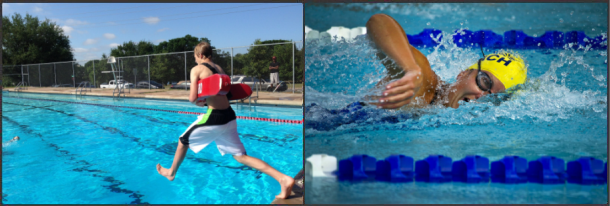Lifeguard information and facts

On this page you will find relevant information related to being a Lifeguard
You can become a lifeguard via:
- an apprenticeship
- training with professional bodies
Entry requirements
To get onto an apprenticeship, you’ll find it useful to have:
- some GCSEs, usually including English and maths, or equivalent, for an intermediate apprenticeship
Enquire now via our booking page
Work
You may be able to work as a pool attendant or assistant, for example in a leisure centre, and take lifeguard qualifications on the job.
Other Routes
If you want to work as a pool lifeguard you’ll need one of the following qualifications:
To be a beach lifeguard, you’ll need to complete the National Vocational Beach Lifeguard Qualification (NVBLQ).
You can complete the qualifications by:
- joining a local club as a volunteer and training with them
- training with a professional body
Skills and knowledge

You’ll need:
- customer service skills
- the ability to work well with others
- to be thorough and pay attention to detail
- physical skills like movement, coordination and dexterity
- knowledge of first aid and life saving techniques
- concentration skills
- patience and the ability to remain calm in stressful situations
- knowledge of public safety and security
- to be able to carry out basic tasks on a computer or hand-held device
- Lifeguard information and facts
Restrictions and Requirements

You’ll need to:
- be over 16 years of age
- pass enhanced background checks as you may work with children and vulnerable adults
- be able to swim
To take a pool lifeguard qualification you’ll need to be able to:
- jump or dive into deep water
- swim 50 metres in less than 60 seconds
- swim 100 metres continuously on front and back in deep water
- tread water for 30 seconds
- surface dive to the floor of the pool
- climb out of the pool unaided without using ladders or steps
To qualify as a beach lifeguard you must have a good level of fitness and be able to swim in the sea to take the National Vocational Beach Lifeguard Qualification. You’ll also need to be able to:
- complete a 400m pool swim in less than eight minutes
- make a surface dive to a depth of 1.5 metres
- tread water for two minutes
- climb out of deep water unaided
You’ll have to demonstrate these skills as part of an assessment.
Day-to-day tasks
As a pool or beach lifeguard you’ll supervise swimming areas and help people in trouble. For your main tasks you will:
- make sure swimmers follow safety rules
- make sure people stay in safe areas
- rescue swimmers in danger
- give first aid
As a pool lifeguard, you’ll also:
- advise swimmers on how to use diving boards and slides
- check pool water temperature and chemicals
- clean the pool area and set up equipment
As a beach lifeguard you’ll also:
- monitor sea conditions and set up safety flags
- be a point of contact for people on the beach
Working environment
You could work at a fitness centre.
Your working environment may be humid and outdoors some of the time.


